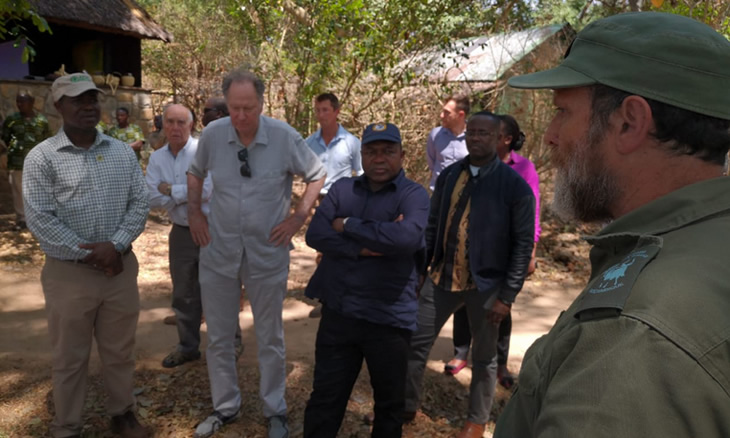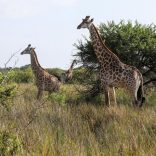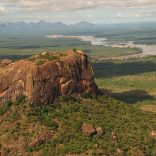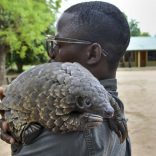Mozambique: ANAC recruiting 351 new rangers for eight national parks
Nysui discusses anti-poaching measures – AIM report

Photo: O País
Mozambican President Filipe Nyusi on Friday visited the Niassa National Reserve, the country’s largest conservation area, in the far north, to assess the effectiveness of the measures taken by the government against the poaching of elephants.
In April 2018, when the slaughter of elephants in the reserve had reached the alarming figure of three a day, Nyusi, in his capacity as commander-in-chief of the defence and security forces, dispatched a unit of the Rapid Intervention Forces (the riot police) to the Reserve.
During his visit, Nyusi chaired a meeting attended by the Minister of Land, Environment and Rural Development, Celso Correia, the General Director of the National Administration of Conservation Areas (ANAC), Bartolomeu Soto, the administrator of Mecula district,where the headquarters of the reserve is located, and other senior staff of Correia’s ministry.
According to a release from Nyusi’s office, Correia informed the President that preliminary results from the latest elephant census indicate that there are about 4,000 elephants in the Niassa Reserve. This is something of a recovery, since the 2016 census only counted 3,500 elephants in the reserve.
Nyusi took part in an operation to immobilise an elephant and place a collar on it, which will allow its movements to be tracked by satellite. The managers of the Reserve baptised this elephant “Mr President”.
“Putting collars on the elephants in the reserve is a management measure which seeks to increase control of the animals, and study their movements and population dynamics”, said the release.
Nyusi also met with a group of philanthropists and investors in conservation tourism, including David Bonderman, chairperson of the Wildcat Foundation which has granted consistent support to the Niassa Reserve, investing eight million dollars over the past six years.
Other organisations that took part in the meeting were the Wildlife Conservation Society (which is the government’s partner in the co-management of the Reserve), Fauna and Flora International, and the three companies given blocks of the Reserve in which to operate, namely Luwire Ltd, Mariri Investments Ltd, and Chiluxi Conservation and Investments.
The government estimates that the efforts to protect the reserve, with the involvement of the Rapid Intervention Force, and the Natural Resource Protection police unit, in addition to the wardens of the reserve and of the concessionary companies, have led to a 73 per cent reduction in elephant poaching when compared with the first half of 2017.
Nyusi praised the work under way to revise the Reserve’s Management Plan, which is now at the phase of public consultation, through which the local communities express their expectations for the development envisaged for the 2019-2029 period.
The President encouraged the local government to mitigate the conflicts arising from the management of natural resources. He stressed the role of the local community as the greatest guardian of the conservation of biodiversity, and urged the defence and security forces stationed in the reserve to continue the struggle against poaching.
Nyusi stressed that “Niassa is one of the last and greatest areas of wild life in Africa. It is the heart of the miombo forests – the most important habitat for Mozambicans and for many other African peoples. We need to do all that we can to preserve the Niassa National Reserve”.












Leave a Reply
Be the First to Comment!
You must be logged in to post a comment.
You must be logged in to post a comment.